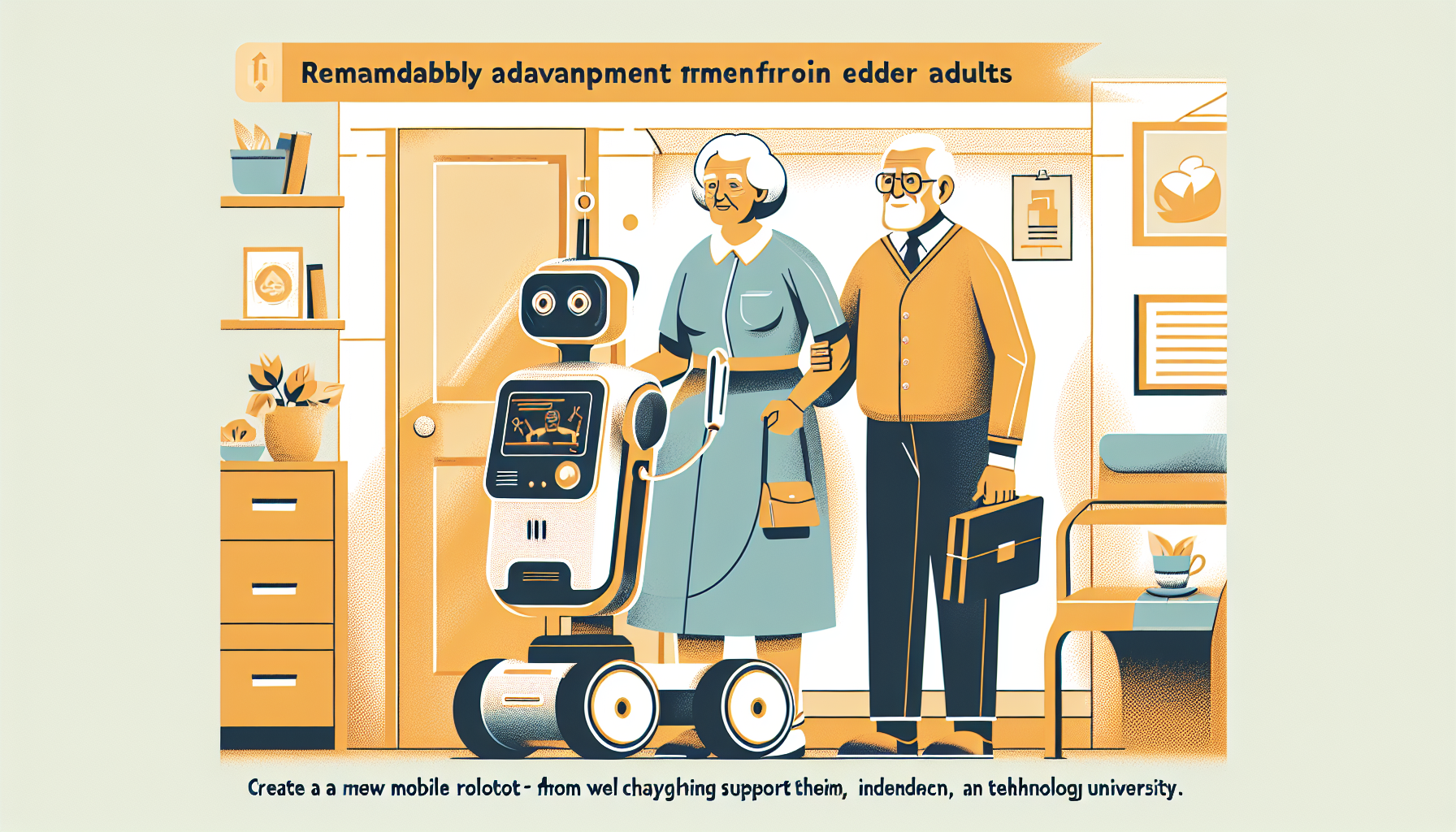A remarkable advancement in eldercare has arrived from the engineers at MIT: a new mobile robot called E-BAR. This device is changing the way we think about supporting older adults, offering them greater safety, independence, and dignity as they move through their daily lives.
Thoughtful Design for Everyday Needs
At the core of E-BAR’s design is a solid foundation. Its base weighs 220 pounds, giving it the strength to support adults who need help standing, sitting, or walking. The main body is made from 18 connected bars that can move smoothly, much like the folding arm of a crane. This allows E-BAR to gently rise or lower as needed, supporting users during transitions between positions.
The robot is shaped to be leaned on for support, while still enabling users to move as freely as possible. E-BAR’s thoughtful design does not replace a person’s own efforts, but instead provides extra strength and balance where it’s most needed. For many elderly people, this simple support could mean the difference between a risky struggle and a confident, safe movement.
Innovation in Safety: Guarding Against Falls
One of the most important dangers facing older adults is the risk of falling. E-BAR addresses this risk in a groundbreaking way. The robot is equipped with special side airbags that can respond instantly if a user starts to fall. These airbags inflate rapidly, creating a protective barrier that can soften a fall and help prevent injuries.
Falls are a leading cause of injury and lost independence for seniors. By providing a dependable system of support and fast-acting protection, E-BAR directly tackles a problem that affects countless families and communities. Its presence brings reassurance, allowing older adults to focus more on living and less on worrying about what might go wrong.
Adaptable and Ready for the Future
The first version of E-BAR is operated using a remote control, giving caregivers or users the ability to guide it through a living space. But this is only the beginning. Engineers plan to create future models that can work on their own, navigating around furniture and adjusting to different rooms automatically. These new versions will also be smaller and easier to use in tight spaces—an important feature in many homes.
Such adaptability will become more and more crucial. The number of people aged 65 and over is rising fast. In the United States alone, over 11,000 people reach this age every day. Meanwhile, the number of caregivers is not growing fast enough to meet the need. Smart robots like E-BAR offer a new way to bridge this gap, providing hands-on support where human help is in short supply.
Transforming the Landscape of Elderly Care
E-BAR’s arrival is timely. Families, hospitals, and senior living communities all face the challenge of helping older adults stay active and safe. By offering gentle physical help partnered with instant safety features, E-BAR encourages users to remain mobile, exercise more confidence, and avoid some of the most common risks of aging.
This robot is more than just a device: it reflects a deep respect for the needs and dignity of elders. Rather than replacing human connection, E-BAR serves as a sturdy partner, opening doors to greater independence for those who need it most.
A New Chapter in Caring
E-BAR is an inspiring step forward in the mission to care for our aging population. Its careful engineering and gentle power stand as testimony to the possibilities of technology used wisely and compassionately. As E-BAR and future devices like it become more advanced, they are set to play a vital role in helping people age with safety, confidence, and grace.

Leave a Reply